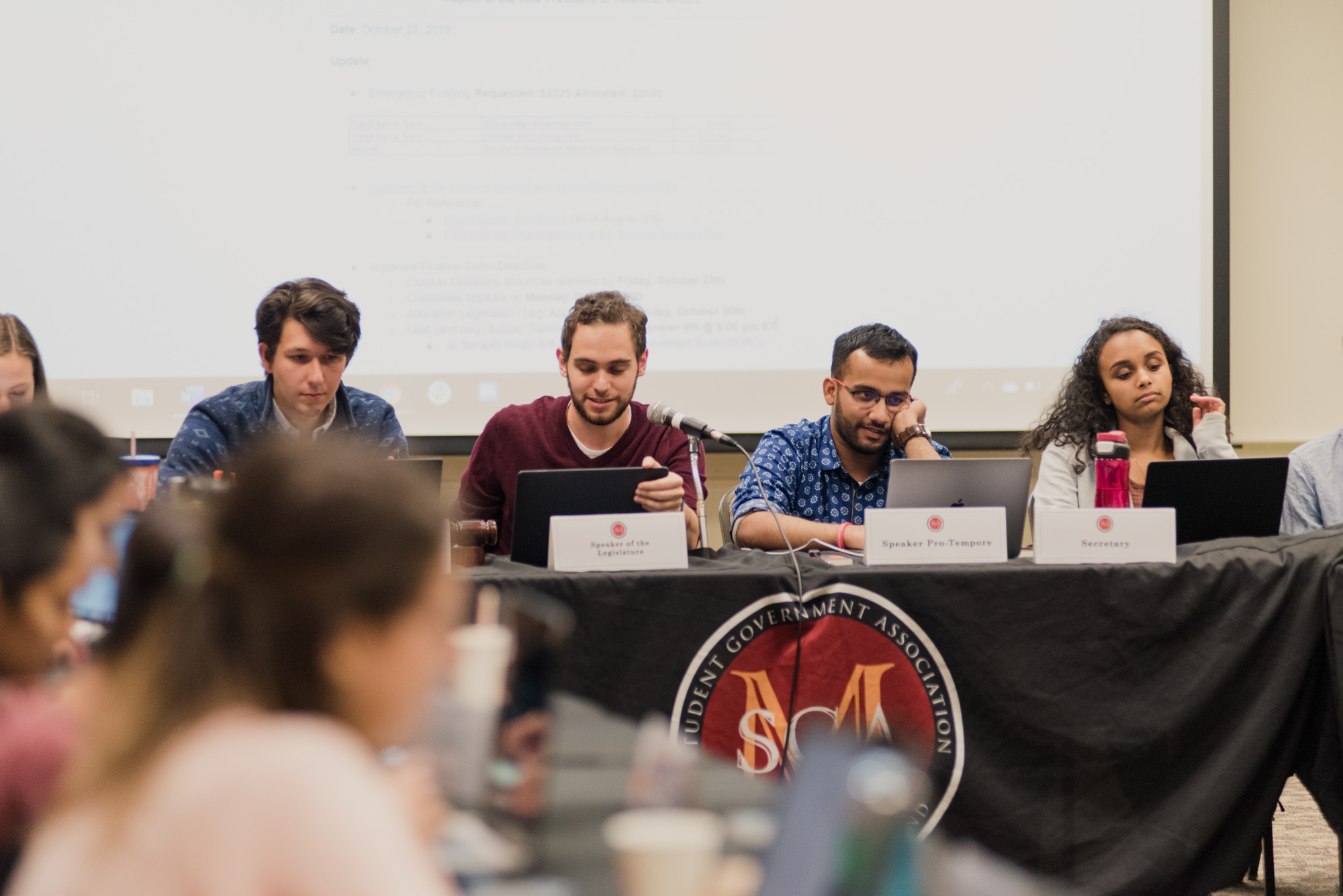The University of Maryland’s SGA voted Wednesday to fund a mental health first aid training session for the second year in a row.
The two-day training will be available to undergraduate students at a subsidized cost and award participants with a certificate. It aims to teach students how to intervene and help people experiencing panic attacks, suicidal thoughts or trauma by using role-play activities and educational exercises.
“We are all working on promoting a safer and more aware community when it comes to all types of health and wellness issues,” said David Rekhtman, the Student Government Association’s speaker of the legislature.
The SGA will offer the training Nov. 8-9 at Stamp Student Union in two four-hour sessions. It will be led by Leslie Krafft, the North Campus residential case manager and the only certified trainer on the campus.
“Students want to help, but there is a lot of fear about saying the wrong thing,” Krafft wrote in an email. “We cannot rely solely on licensed professional therapists to support the many students struggling with mental illness. We all need to be providing a supportive environment and serving as resources. We should all know how to respond when we encounter mental health challenges.”
[Read more: UMD SGA hosts first ever sexual misconduct prevention training]
In 2013, the American Psychological Association released a survey that this university participated in, and found 41 percent of college students surveyed dealt with anxiety, 36 percent dealt with depression and 36 percent dealt with relationship problems.
As a part of the SGA’s initiative, the health and wellness committee also plans to work with the governmental affairs committee to lobby in Annapolis, advocating for additional funding for future mental health first aid training sessions.
Kelly Sherman, the SGA’s health and wellness director, said the body would work to find a delegate to sponsor a bill allocating money toward mental health first aid programs at colleges around the state.
Currently, the funding for the training comes out of the SGA’s legislative reserves. It costs $563 to put each session together, according to the bill. The SGA hopes to secure additional funding to train more faculty members on how to administer the courses — who could then train more students.
“If we get five new trainers, then that would make the process a lot better,” Sherman said.
Manya Kaur, the bill’s sponsor, said its passage meant the campus “is just one step closer [to] having mental health recognized as an actual thing.” She added that she hoped it could fill a gap in the university’s resources.
[Read more: UMD Latinx students are pushing for a cultural center on campus]
In 2018, the student group Scholars Promoting and Revitalizing Care launched a campaign called “30 Days Too Late,” which was aimed at spreading awareness about mental health on the campus. Its title is a reference to how long it can take to get an appointment at the Counseling Center after an initial intake.
After winning $5,000 in the university’s Do Good competition, SPARC gifted $2,500 to the Department of Resident Life to establish the first training program. That money allowed Krafft to receive the training she needed to train others.
Krafft told The Diamondback in May 2018 that the goal was to have 50 people — including RAs and Resident Life staff — certified by the end of the last academic year. And Sherman said 75 people will have the certification after the upcoming training, which can only accommodate 30 students due to space constraints.
Students will be able to buy tickets for $10 from the Stamp ticketing office Oct. 25 through Nov. 4.
Colleen Herrmann, the deputy director of the SGA’s health and wellness committee, was certified last year. She said she hopes students who participate will begin to realize how important mental health is — and how they can help people struggling with it.
“I almost immediately was able to use the things I learned with friends and roommates who suffer from mental illness, and it really genuinely taught me a lot,” she said. “I’m really passionate about people knowing that this is an option that’s out there because it’s not talked about. It’s not as popular as CPR.”



